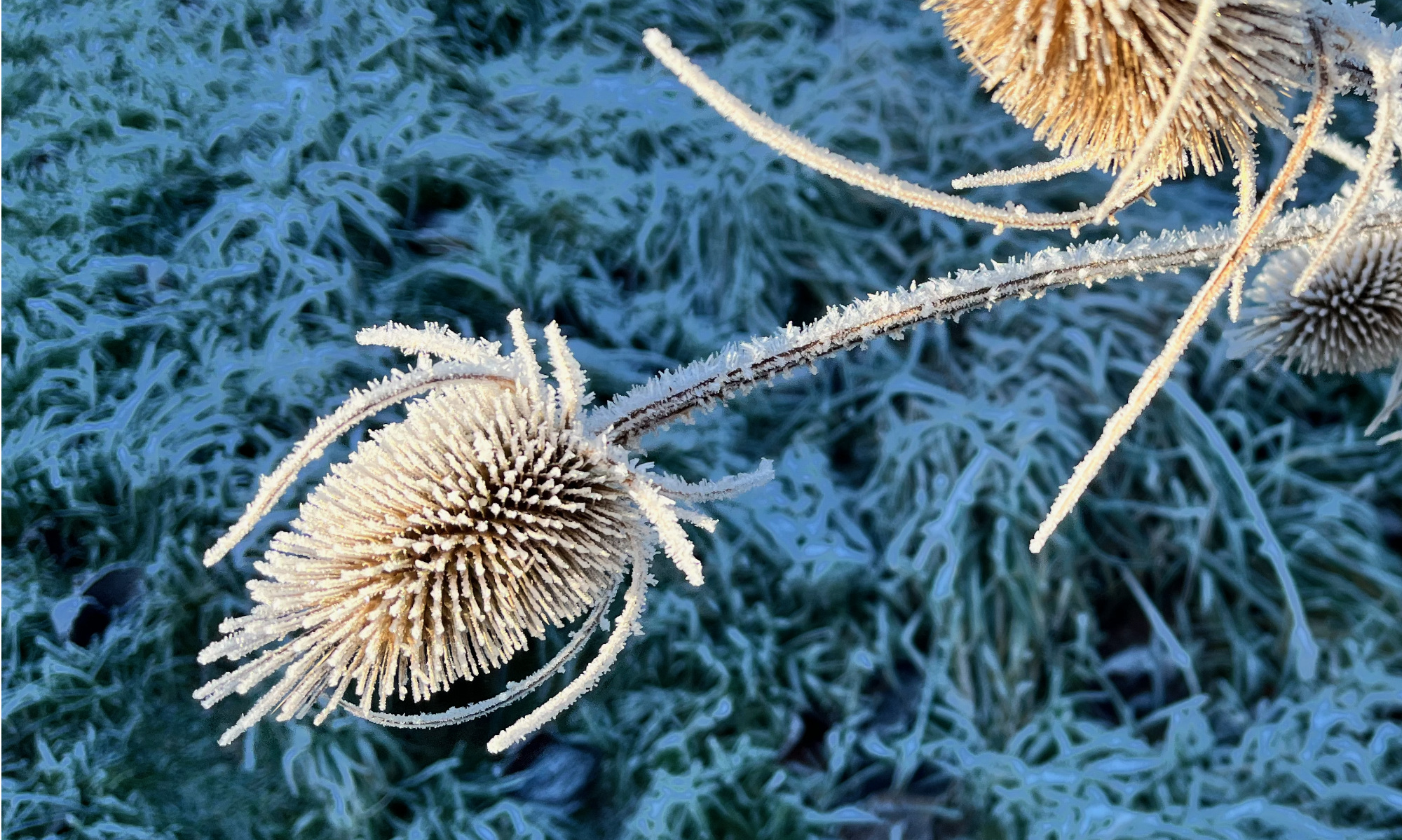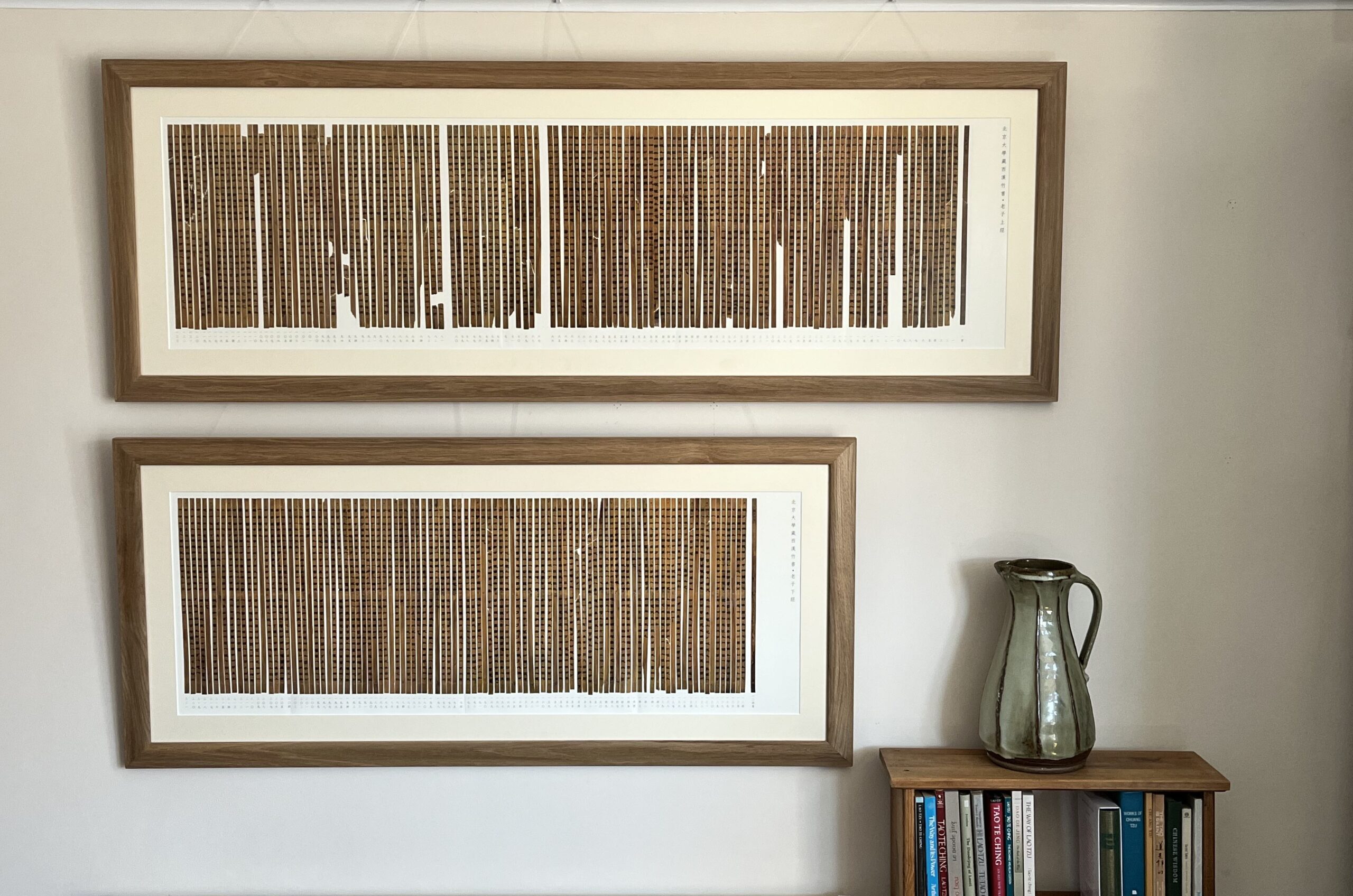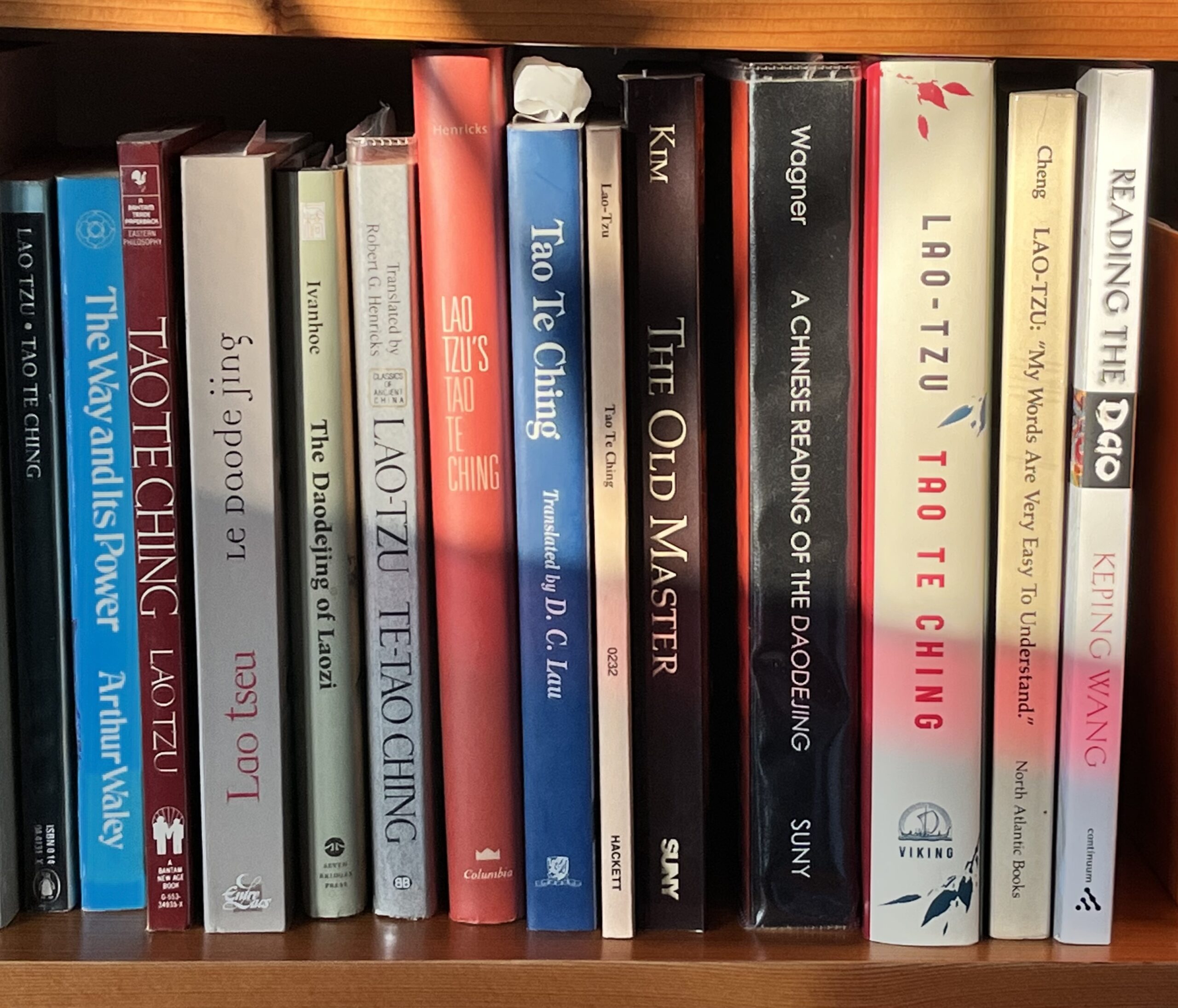藏之道
The three months of winter are called closing and storing.
Water freezes, earth cracks.
Do not disturb the yang at all.
Early to bed, late to rise. (You) must await the daylight.
Make that which is of the heart/mind as though hidden, as though concealed,
as though (you) have a secret intention, already obtained.
Leave the cold, seek warmth.
Do not leak the skin.
Urgently hold onto the qi.
This is the winter compliance of qi;
the cultivation of the Dao of storage.a
To oppose these principles injures the kidneys.
(Consequently) spring will bring paralysis and fainting
(and) there will be little to offer (your) sprouting.1Neijing Chapter 2.
Winter is the time of the kidneys, which are the basic source of energy in the body. They act very much like batteries. At this time of year we need to recharge them by protecting and nourishing them. This is done by storing our energy rather than expending it.
This is the most yin of the seasons. When the weather turns cold, everything in nature goes to sleep. As the Yellow Emperor’s Internal Classic, the Neijing, tells us, ideally we should reduce our activity, go to bed earlier, and get up later, so as not to ‘disturb the yang at all’. Like fish sinking to the bottom of an icy pond, or like a daffodil bulb in the cold ground, we should let our energy sink deeper inside us. It is only by storing its energy in winter that the daffodil can flower in spring. Similarly, it is only by resting and storing our energy now that we will be able to ’sprout’ – have the energy to increase our activity – when spring comes. So, this is not the time to start jogging, doing aerobics or anything else that will bring our energy to the surface and make us sweat, or, as the Neijing puts it, ‘leak the skin’. We should avoid rushing around. Instead we should go to bed early, get up late and stay inside where it‘s warm.
The mind also needs to rest. The kidneys are closely associated with the fundamental drive that is called zhì 志 in Chinese. Zhì is often translated as ‘will power’. At its most basic level, it is the survival instinct; that which keeps us going in the darkest times. In less extreme situations it is that faculty which identifies and works towards goals and towards attaining the things that we want. It is the zhì that is spoken of in the line: ‘Make that which is of the heart/mind (zhì) as though hidden, as though concealed’. Now is not the time to activate the zhì. To do so would call on the energy of the kidneys. Rather we should put away our desires in winter and let them rest. In this time of letting go and quietening desire, chapter 46 of the Laozi, the great text of Daoism, is worth contemplating:
Calamity: there is none greater than not knowing what is enough,
Offence: there is none greater than desiring gain.
Thus knowing enough of what is enough is always enough!
Knowing enough of enough is reflected in our passage from the Neijing in its instruction that we should make the heart/mind ‘as though (you) have a secret intention, already obtained’. It is usually with the attainment of our desire that we are, if only briefly, satisfied and able to truly relax. These passages point to a more subtle option, that of letting go of desire itself, which leads to a much more profound and enduring stillness.
Basho, the great master of the Japanese poetic form now known as haiku, who was deeply influenced by writings of the Daoist master Zhuangzi and Chinese Chan/Zen Buddhism, beautifully invokes the importance of stilling the heart-mind at this time of year in his winter poem 1687:
First let us cherish
the plum blossoms’ heart
winter dormancy.2No. 341. The original is: まづ祝へ梅を心の冬籠り (mazu iwae / ume o kokoro no / fuyu-gomori). My thanks to Rachelle Allen-Sherwood for her help in translating this poem. Any mistakes are my own.
Just as in Chinese, the ‘heart’ in Japanese is also the ‘mind’. It is the core of who and what we are. This poem celebrates the flowering of plum blossoms in the spring, which is possible only because they conserve their essence through the cold of the winter. In the terms of the Neijing, by observing the winter compliance of qi and cultivating the dao of storage, the plum blossoms have plenty to offer their sprouting when spring arrives.
Autumn is, ideally, the time when we gather that which nourishes us and let go of that which is no longer of use to us. Now, in winter, it is time to store what we gathered and to allow our systems to rest in stillness.
The dominant element now is water, which naturally flows downward, cleanses, nourishes and goes very calm and still when not disturbed. When water becomes still, it is able to let go of what it is holding in suspension, allowing the sediment to settle out of it. It then becomes clear and reflective, like a mirror.
Both Daoism and Buddhism use this image of still water becoming clear and reflective as a metaphor for the stilling of the emotions and the mind through breathing and related mindful practices.
Tai Chi Fundamentals (Energy Gates) is a powerful winter practice. It activates the water element in the body. Standing is very yin, as is Cloud Hands when we focus on the downward flow of energy. Both practices strengthen the kidneys and help them to store energy better. One way of complying with winter in our Tai Chi or Qigong, is to allow our form to go as smooth and liquid as possible, attending more to the inward and downward flows. To this end we should avoid stopping to correct ourselves. Instead, we should simply note any mistakes to adjust the next time around while maintaining the flow of our movement as best we can, without strain. The closing and bending actions of any form are the ones that encourage the storing of energy. It is also useful to focus on allowing the hands and feet to become very soft. This is the time to let go of the desire to accomplish anything in our practice.
At this time of year, it is best lie down and rest for a while after practice and gently put our attention on the kidneys, letting all of our energy collect there. During the day 3.00-5.00pm is a particularly good time to rest as it is the time that the kidney system is strongest.
Eating what is in season is always a very good way to comply with the qi of the time. Nuts, especially walnuts and chestnuts, are particularly good for the kidneys, as is lamb. Avoid cold food and drink as your body must burn energy to warm it up before it can be used. This is part of ‘leaving the cold and seeking warmth’.
Text and translations ©Matthew Brewer, Daoist Internal Arts, 2017-18.
Notes



